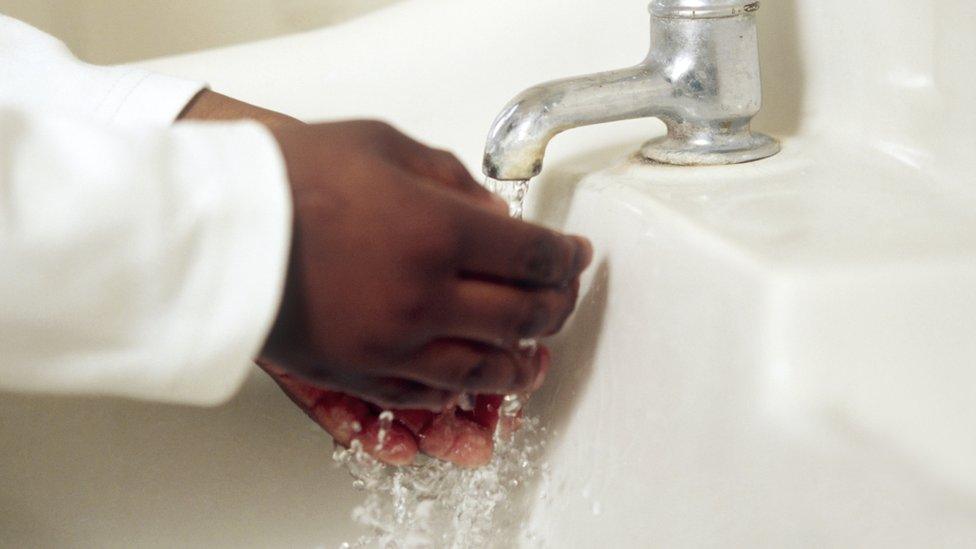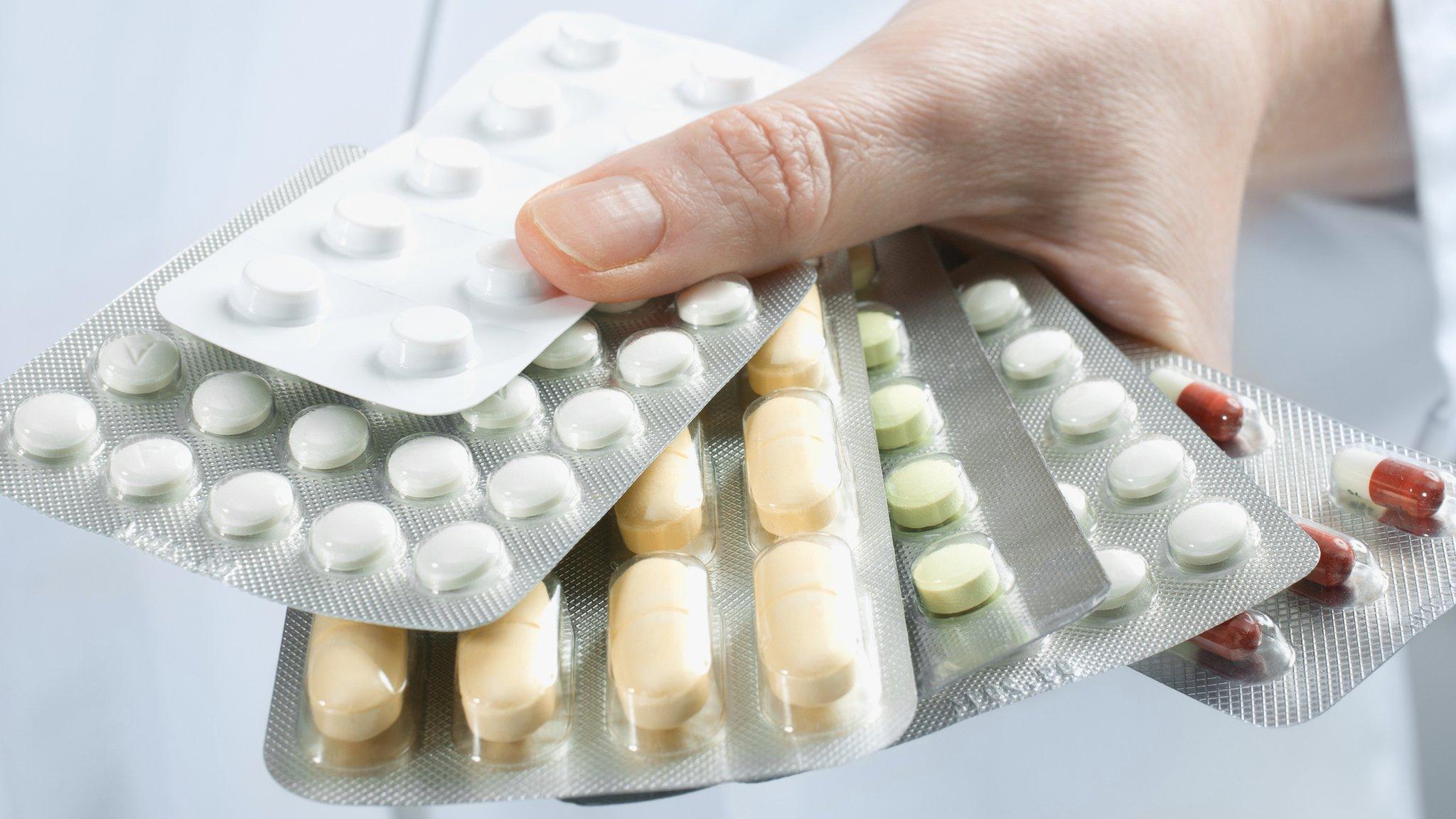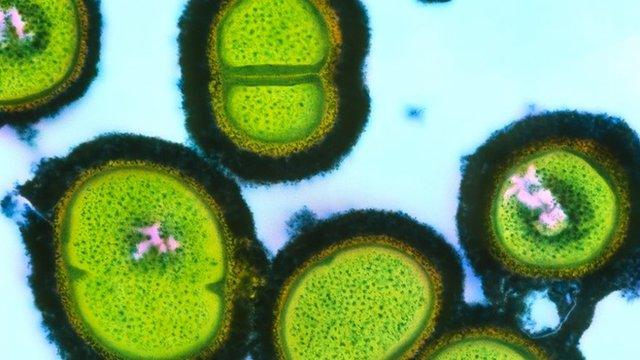Pupils 'need hand-washing lessons' to cut drug resistance
- Published

Schoolchildren should be taught how to wash their hands to tackle the growing threat of drug resistant bacteria, say health officials.
Draft National Institute for Clinical Excellence (NICE) guidelines for England recommend teachers demonstrate how to use soap and water correctly.
And they should provide age-appropriate lessons on when antibiotic drugs are unnecessary, says NICE.
For example, having a cold or the flu is not a reason to seek antibiotics.

These infections are viral and cannot be treated with antibiotics, says NICE.
Hand-washing tips
NICE says an effective hand-washing technique involves three stages: preparation, washing and rinsing, and drying.
Step 1: Wet hands under tepid running water before applying the soap
Step 2: Coat all surfaces of the hands with the soap and rub them together vigorously for 10-15 seconds, paying particular attention to the fingers, thumbs and areas between the fingers, then rinse thoroughly
Step 3: Dry with good quality paper towels
Children, and adults for that matter, should always wash their hands after using the toilet, before eating, before touching the eyes or mouth, and after handling animals.
The guidelines are a response to fears that unless action is taken, treatment resistant bacteria could kill more people than currently die from cancer by 2050.
Last month, Nice published guidance aimed at health professionals, estimating that as many as 10 million prescriptions for antibiotics in England are being given out unnecessarily every year.
- Published18 August 2015

- Published11 December 2014
